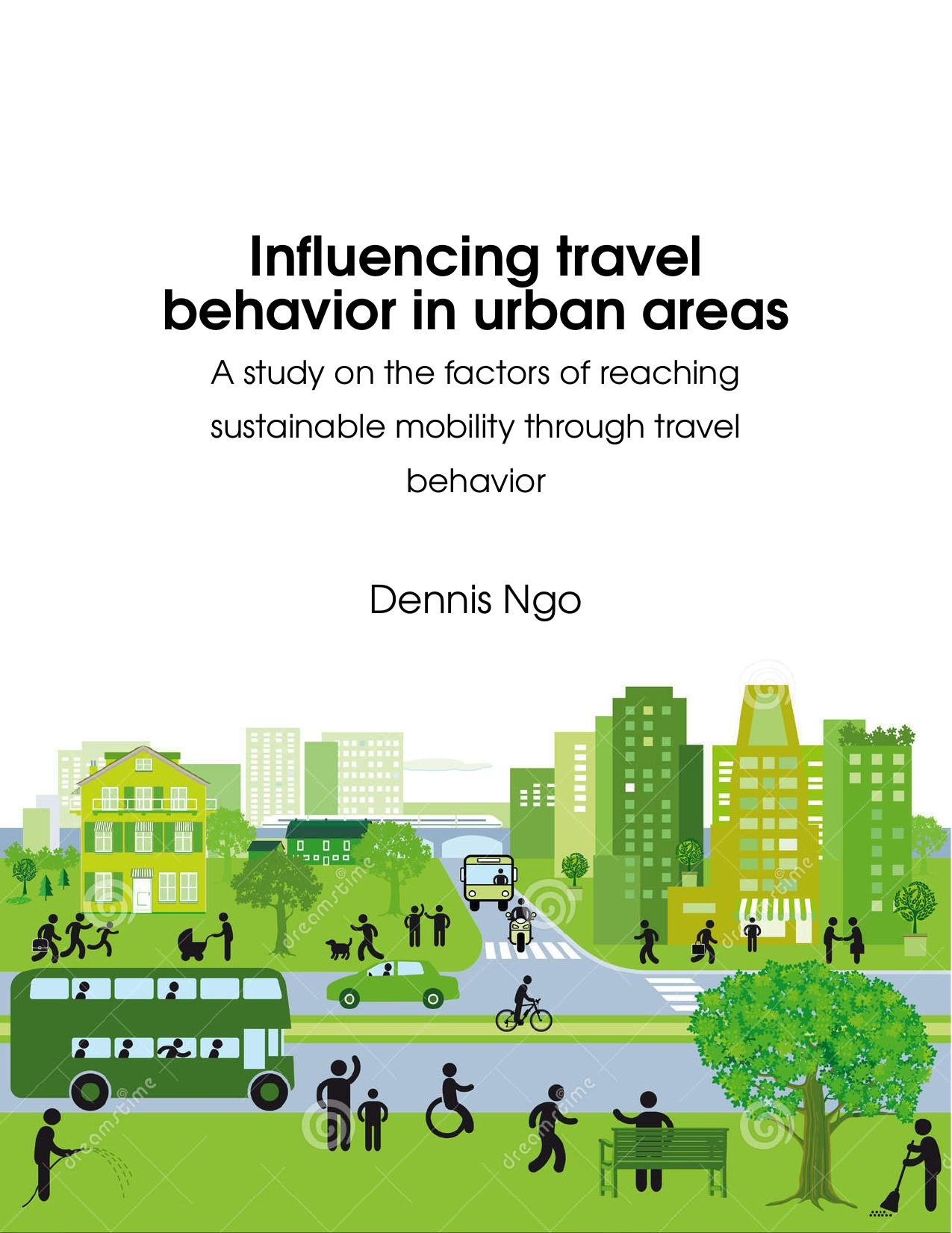
Influencing travel behavior in urban areas: A study on the factors of reaching sustainable mobility through travel behavior
Translated title
Author
Term
4. Term
Publication year
2015
Submitted on
2015-06-03
Pages
57
Abstract
There is a paradigm shift in the way that mobilities are looked at today. It is no longer enough just planning with an overview and using trac models. More elds are getting included in planning mo- bilities, especially the eld of social science. This gives room for the emphasis on chang- ing travel behavior, which has become more and more important in the present solutions, if a sustainable mobility system is wanted. Travel behavior are the patterns and rhythms of peoples decision when trav- eling, especially important is which mode of transport is being used. If there is not a focus on travel behavior, then technol- ogy will take over and encourage people to drive longer, which does not x the problem of congestion. Travel behavior is needed if the future problems of congestion is to be xed. This report is a study on understanding the factors of travel behavior and how it can be in uenced to a more sustainable devel- opment. First, the sustainable challenges and prob- lems of the world are presented and ac- knowledged to create a context for the project, and within these challenges, a lo- cal case is selected. The case is Aarhus, which is forecasted to meet these sustain- able challenges in the future. Second, the aim is to understand the need for travel behavior in mobility and why it is important. After that, it is necessary to understand which factors can in uence travel behavior, if in fact a change is de- sired. Lastly, three case study, done be re- searchers, are reviewed to examine how they t with the theory and more impor- tantly to learn experiences from real life situations. The cases include, a analysis of the built environment and land use of Flanders and the Netherlands, examining how habits in car use can be broken by ac- tive measures and interventions, and how a workplace in Lisbon tried to change travel behavior by relocating their oces. The nal product is a set of lessons learned and recommendations that are in the end related to the case of Aarhus.
